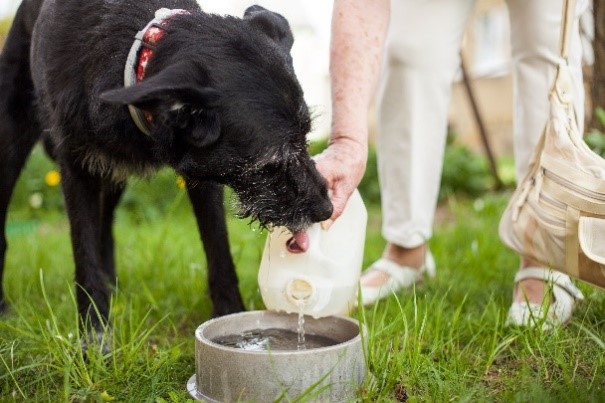Ice, ice maybe? Vet expert demystifies advice around giving ice cubes to pets

With temperatures continuing to rise, it’s important to keep pets cool to reduce the risk of heatstroke as symptoms can develop very quickly and have fatal consequences if not treated.
As pet owners search for new ways to cool their furry friends down, the trusty ice cube is an easy, cheap and quick solution. But with different advice available on the internet when it comes to ice cubes and pets, vet charity PDSA demystifies this chilly topic.
PDSA Vet Nurse, Nina Downing, said: “Advice circulates on social media every summer claiming that the cold temperature of ice cubes can trigger a pet’s heat-regulating system, which results in their body warming up – however, this is untrue. As long as your pet is healthy, providing a few ice cubes to play with or in their water bowl is a great way to cool them down.”
How to use:
“If you’re going to give your pet ice cubes, first make sure the cubes are an appropriate size – they shouldn’t be a size that risks being caught in a dog’s throat.
“If your dog has a tendency to wolf down their food, ice shavings may be more suitable as these smaller pieces will melt faster, reducing the risk of choking as well as minimising harm to your pup’s teeth.
“Another option is to fill a bowl with water and freeze it; this will be too large for your pet to get hold of with their teeth, but they’ll be able to lick it, keeping them cool for longer. We’ve also seen the bizarre trend of people cooling down their pet by placing an ice cube in their bottom or under their tail – this is absolutely unnecessary and not recommended.
“Alternatively, consider freezing your pet’s water bowl before filling it with water, or cool their favourite toy instead – these daily go-tos will help your pet cool down throughout the day.
Frozen fruit or vegetables can also provide a refreshing, healthy snack, but make sure to remove any seeds and the core of the apple before giving it to your furry friend.”
For more information on the signs of heatstroke in pets and how to prevent it, visit www.pdsa.org.uk/heatstroke




